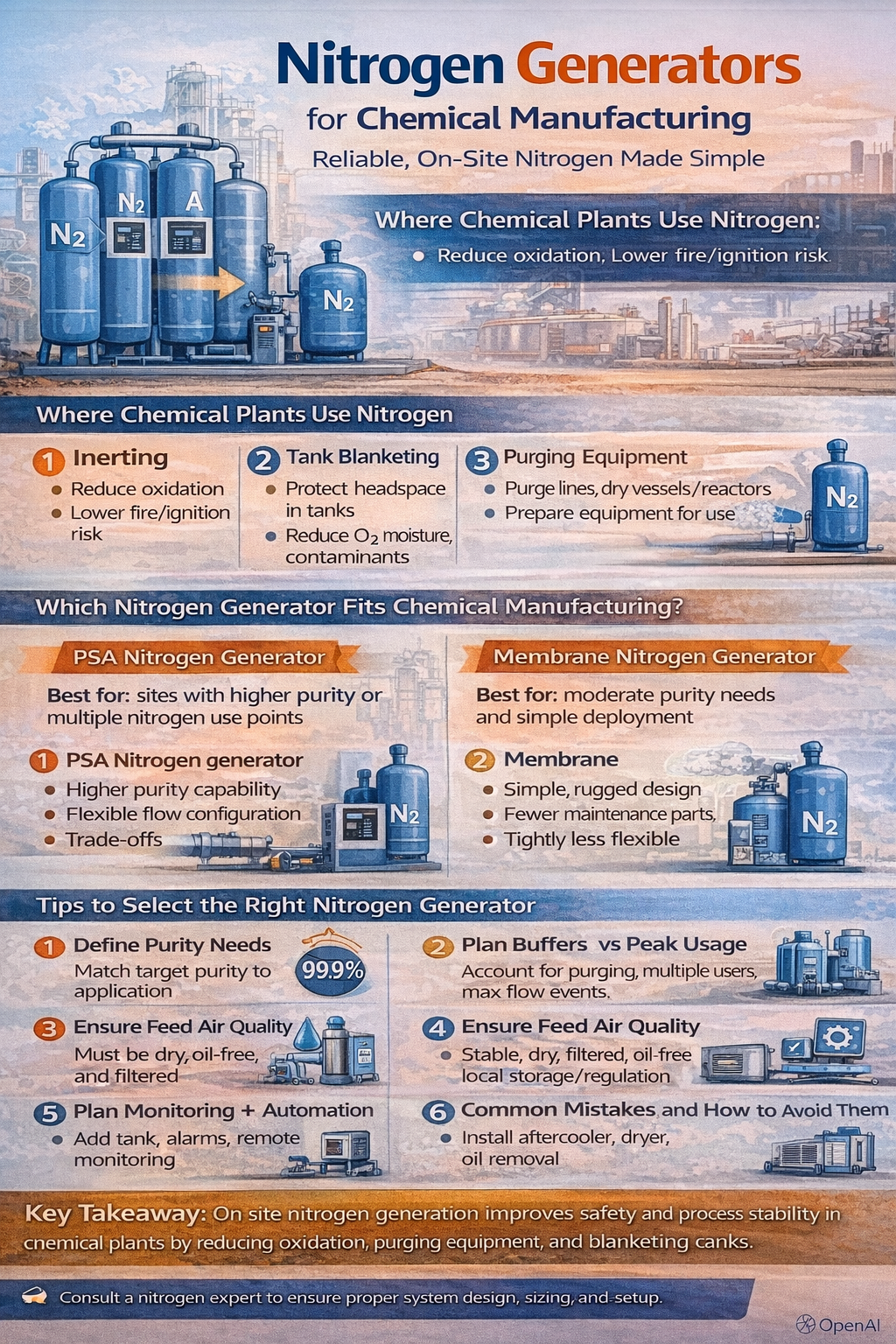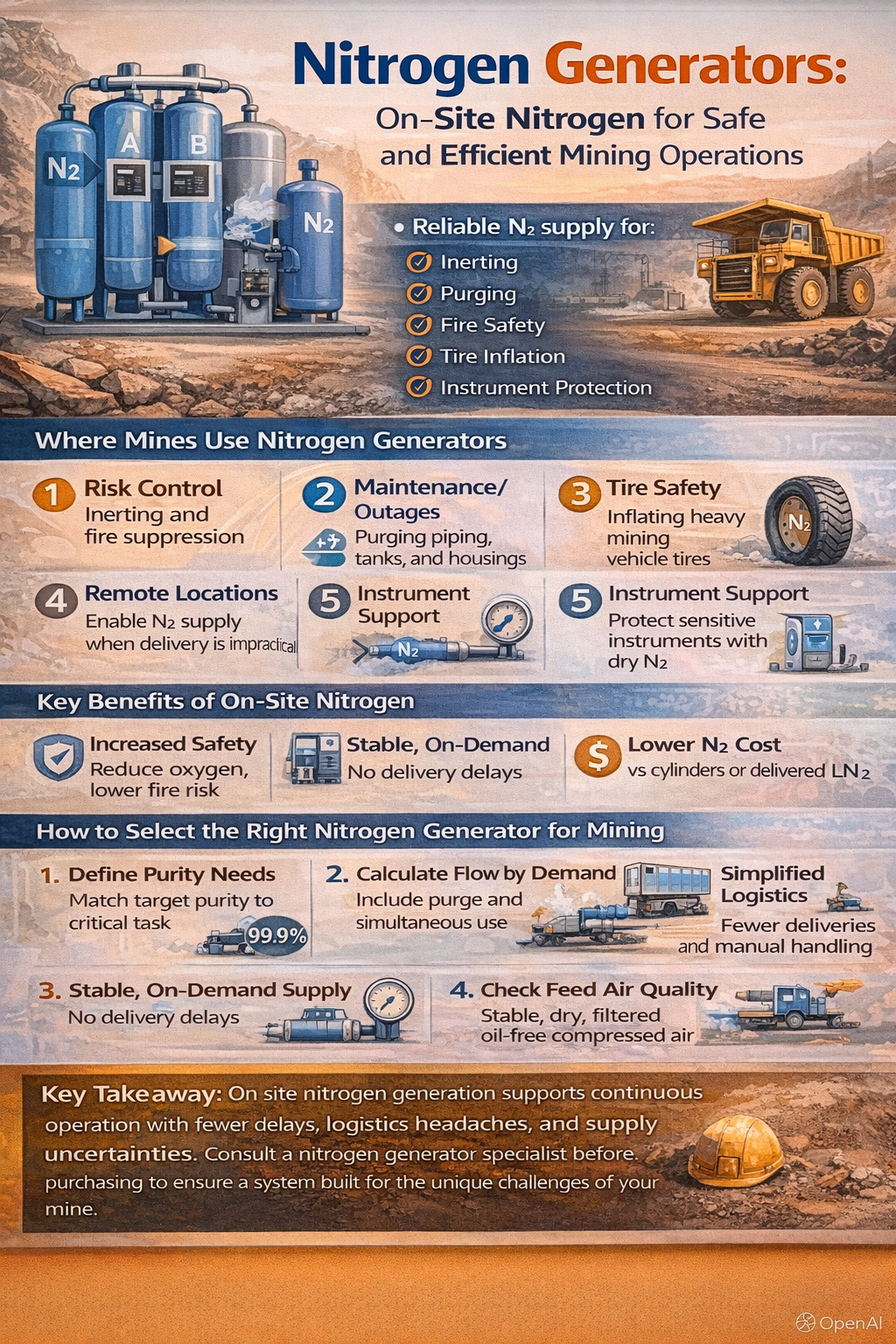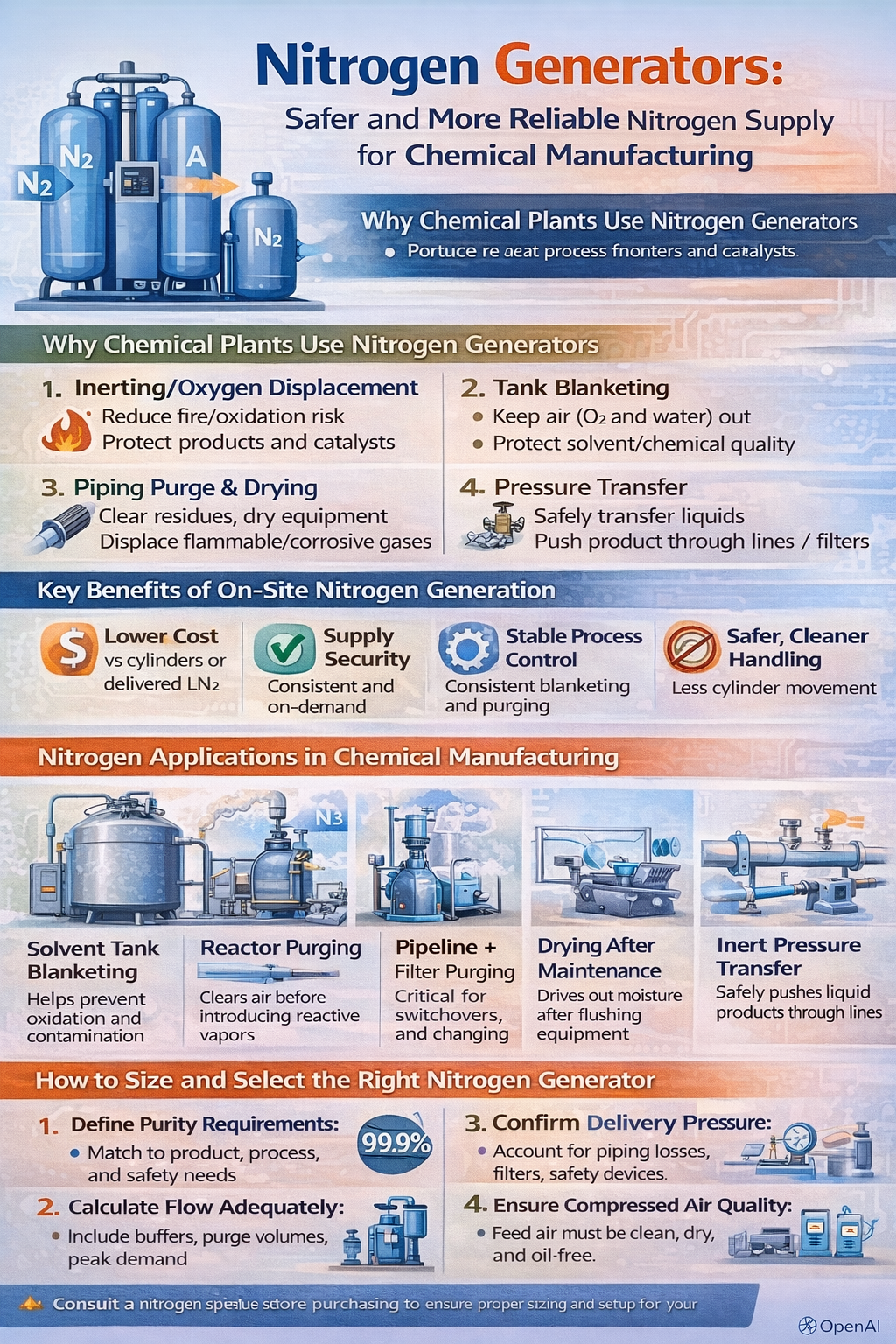Low Pressure Differential Refrigerated Dryer: What Users Need to Know
Low pressure differential refrigerated dryers are essential equipment for ensuring high-quality compressed air in various industrial applications. While many users focus on basic specifications, understanding the operating conditions, technical requirements, and extended benefits can help you make an informed decision. This article provides deeper insights beyond the standard product data.
1. Operating Conditions and Technical Requirements
These refrigerated dryers are designed for non-corrosive compressed air systems and can operate under flexible conditions:
Rated inlet pressure: 0.7 MPa (usable 0.6–1.0 MPa; other pressures customizable)
Rated air inlet temperature: 45℃ (maximum 80℃)
Pressure loss under full load: <0.01 MPa
Dew point of outlet air: 2℃–10℃
Rated ambient temperature: 35℃ (usable 2–45℃)
Cooling method: air-cooled or water-cooled, optional
Technical Parameters Overview
| Throughput (m³/min) | Total Power (kW) | Connection Size | Weight (kg) | Dimensions (mm) L×W×H |
|---|---|---|---|---|
| 3.8 | 1.50 | G1 1/2″ | 76 | 1000×600×1050 |
| 6.5 | 2.50 | G1 1/2″ | 95 | 1100×600×1100 |
| 10.5 | 2.70 | G2″ | 145 | 1250×700×1155 |
| 13.5 | 3.20 | G2 1/2″ | 350 | 1400×800×1200 |
| 17.0 | 4.90 | DN80 | 365 | 1500×950×1400 |
| … | … | … | … | … |
| 120.0 | 28.50 | DN150 | 1890 | 2450×1200×2250 |
Note: For air volumes above 120 m³/min or special specifications, contact lingyu the company for technical support. Data are for reference only and subject to change.
2. Why Users May Want to Know More
2.1 Applications Across Industries
Compressed air dryers are used in a wide range of industrial and professional applications, including but not limited to:
Ozone Generators, Laboratory Analyzers, Waveguide Drying
Environmental Chambers, Dry Sprinkler Systems, Air Brushing
Pneumatic Automation Systems, HVAC Controls, Gas Chromatographs
Medical Air Compressors, Electronic Chip Testing, Robotic Machinery
Dental Air Compressors, Dry Nitrogen Replacement, Car Wash Controls
Bus Door & Locking Systems, Air Bearings, Graphic Printers
CEMS Systems, Vortex Tubes, Air Turbines, FTIR Spectrometers
This variety shows that knowing only the basic specifications may not be enough—choosing the right dryer depends on your specific equipment, environmental conditions, and desired air quality.
2.2 Energy Efficiency and System Integration
Low pressure differential dryers are designed to minimize pressure loss (<0.01 MPa) while maintaining the required dew point. Users often want more information about how these dryers integrate with their existing compressed air networks and how they impact energy consumption.
2.3 Maintenance and Longevity
Understanding routine maintenance needs, filter replacements, and operational limits helps users extend service life and prevent downtime. Information on ambient conditions, inlet air temperatures, and water-cooled vs air-cooled systems can be crucial for long-term reliability.
2.4 Customized Solutions
Lingyu, as a manufacturer of compressed air and gas purification equipment, can provide tailored solutions for your unique air quality requirements. This includes:
Customized dryers for special air volumes, pressures, and dew points
Integration with industrial filtration systems
Consultation on full air treatment solutions
3. How to Get Expert Advice
If you’re unsure which low pressure differential refrigerated dryer fits your system, Lingyu offers professional guidance:
Share your air quality and equipment requirements
Receive a detailed system recommendation
Access custom design support for special specifications
Whether it’s optimizing your compressed air network or ensuring precise dew point control, expert consultation ensures you select the most efficient and reliable solution.
4. Conclusion
Low pressure differential refrigerated dryers are more than just industrial equipment—they are a key component in protecting machinery, improving air quality, and maintaining efficiency across diverse industries. Understanding applications, energy usage, maintenance requirements, and customization options allows users to make informed decisions that go beyond basic specifications.
For more product information

2. Low dew point: The new optimized integrated three-in-one design and uniquewater separation design make the dew point more guaranteed;








